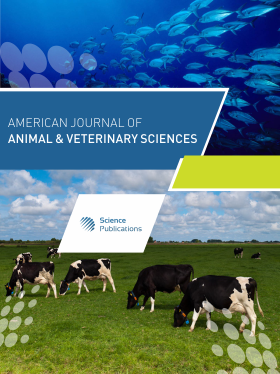Impact of Dietary Polydextrose on Clinical Signs of Canine Osteoarthritis
- 1 University of Applied Sciences Van Hall Larenstein, Netherlands Antilles
- 2 Innovation Centre, France
Abstract
Problem statement: Osteoarthritis is an inflammatory joint disease associated with loss of cartilage matrix. There is suggestive evidence that the intake of polydextrose fiber has anti-inflammatory activity. It was reasoned that polydextrose may have a positive influence on canine osteoarthritis. Approach: A double-blind, placebo-controlled trial with privately owned dogs was carried out to assess the efficacy of STA-LITE® polydextrose in the treatment of osteoarthritis. With the use of a questionnaire, five clinical signs were evaluated by the owners. For a period of 8 weeks, the dogs received a complete dry food without or with 3% polydextrose. There were 16 control and 19 test dogs. Results: The baseline values of clinical scores for swelling of joints, stiffness and lameness indicated that the severity of osteoarthritis was much less in test dogs than in the controls. The initial scores for activity and pain were similar in two groups. Comparing the changes in clinical scores over time between control and test dogs would be biased by the difference in baseline severity of osteoarthritis. On strict terms, a maximum number of pairs of matched control and test dogs was formed for each clinical sign. It was found that all five clinical signs showed more group-mean improvement in the dogs fed the diet containing polydextrose than in those given the control diet. The difference between the pooled group-mean changes of the control and test dogs was statistically significant. As an overall index of the improvement of osteoarthritis, the sum of changes for the five clinical variables was calculated. Polydextrose was found to induce a marked improvement of osteoarthritis: The polydextrose-mediated increase in the osteoarthritis improvement index was 57%. Conclusion: Polydextrose can be considered safe and it is suggested that a dose of 3% in a dry food can be beneficial for dogs with osteoarthritis.
DOI: https://doi.org/10.3844/ajavsp.2011.93.99

- 5,039 Views
- 5,780 Downloads
- 16 Citations
Download
Keywords
- Dietary polydextrose
- canine osteoarthritis
- double-blind
- placebo-controlled trial
- joint disease
- functional ingredient
